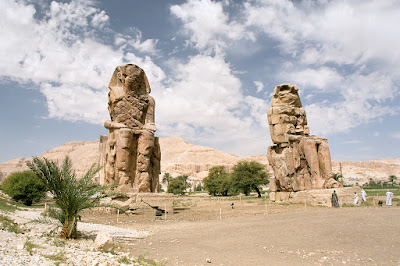It was a bittersweet moment because I was doing a walk-through with the outgoing tenants, with no incoming tenants in sight. As soon as I walked into the door the state of the place took me aback as if somebody had hit me with a rake. And what was that awful smell?
Some kind of cleaning product.
The tenants told me rather smugly they had given the place the "military clean" and, to be fair, I couldn't find a speck of dust anywhere.
I watched out of the corner of my eye as my inner petty landlord slung his pack over his shoulder and slumped away down the street. All my grandiose plans and dreams of arbitrary deposit withholding were in tatters.
Things went from bad to worse in the form of my first encounter with the neighbors since the lawn maintenance dispute. As frosty as a frosted up frost cone with a layer of ice over the top for good measure, is how I'd describe our relations.
Our neighbors are German. I don't hold that against them, although I was slightly disconcerted back in the pre-Berlin wall days when we were around the older one's abode and she whipped out a book of Adolf Hitler's paintings.
"He was very talented. Had he been accepted to art school..." and she trailed off.
But we got the message. The failure of one lazy tutor to recognize young Adolf's talents was responsible for the deaths of x-million people.
I encontered her and there was a rather terse exchange about the weather. No mention of the rather obvious fact a new baby had arrived since the last time I saw her and there he was in a freaking heavy car seat wailing about five yards away from her severe Teutonic feet.
Anyway, the point of this post is nothing to do with the rental house or the neghbors but the sketchy hood park we drove past on the fringes of the sketchy hood.
It was so insignificant I had hardly noticed Zara rambling on about it as we drove past it earlier. Indeed I have hardly noticing down to such an art form that I'd probably have more luck than Adolf at being accepted into the Vienna art school.
But as we drove off she started going on and on about the swings.
"I have no idea where they are," I said and headed out of the neighborhood through the dicey part. Then just when we were on the main road she started yelling: "There they are, there they are."
Somewhat bleakly I clapped eyes on one of the most godforsaken hood parks I had seen for a while with three working swings, mere slivers of rubber, hanging over puddles.
I tried to make excuses but agreed to turn back. I really think children have some kind of swing blind spot. If the aforementioned swing was hanging over a goo-infested septic tank with radioactive signs all over the place, they'd still be begging me to go on it.
At closer inspection the hood park was as mean and hoodish as it appeared to be from the road. On the edge of a neighborhood of flimsy shacks with no trespassing signs - even the trees had no trespassing signs for goodness sake - the park was some kind of afterthought.
Reluctantly I agreed it was probably a better bet than trespassing on a hood tree.
It consisted of a basketball court with rusted rings that were bent and twisted and a pleasantly cracked surface strewn with broken glass.
There was one large metal bench that nobody in their right mind would think of sitting on. However, nobody in their right mind would be in the hood park, I figured. It looked like the kind of thing you'd use to smash off fenders in a particularly disreputable scrapyard.
After five minutes of Zara swinging I found myself pacing around and swearing quietly to myself, After 10 minutes I was swearing more loudly. To me it was an old piece of rubber over a patch of filth. To Zara, the hood park, was Elizabeth City's answer to Disney World.
We were just about to escape from the place when a shifty-looking character sidled over to me with what looked like a joint hanging out of the side of his mouth.
"You %$**&&^^^%%%% maaan," he drawled and shot out a grubby hand.
I had no idea what he was saying. I had an inkling he was begging but the desire to get the heck out of the hood park was rather high on my agenda.
"2.30," I told him with a swift glance at the place on my wrist where my watch should have been. I then grabbed the kids and headed to the car as fast as it's possible to move with an oversized infant seat.






















